I’ve never been to El Salvador. Or have I?
The following is a part of a series of reflections from our 25th Anniversary Delegation to El Salvador participants.
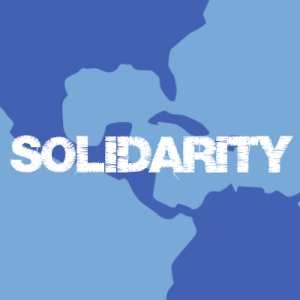 “I’ve actually never traveled to El Salvador.”
“I’ve actually never traveled to El Salvador.”
Most people who know me well were surprised when I shared this fact with them in the weeks leading up to this trip.
“Chris, you are so passionate about these issues. I am amazed you have never experienced them personally,” one friend commented.
It’s true. Solidarity with people marginalized by economic injustice in Central America has been an integral part of my life for nearly 20 years. It’s literally impacted everything that I am today, as a person of faith, spouse, father, friend, and professional. I’ve stood at the gates of Ft. Benning to protest the killing of the martyrs and thousands of innocent people by graduates of the former School of the Americas; I’ve visited other countries in the region and learned how martyrs like the Jesuits, Churchwomen and Oscar Romero have influenced people well beyond El Salvador; and I can even quote most of the lines from the movie Romero by heart – but, I’ve never “traveled” to El Salvador. However, I do think I’ve “been” to El Salvador.
Back in high school, as a young impressionable freshman theology student I was introduced to the Jesuit martyrs of El Salvador. My jovial Hebrew Scriptures teacher, Jim King, S.J., deviated from the curriculum for a day in the hopes of opening our eyes to the realities of El Salvador and the recent murders of the Jesuits and their companions. It was 1992 and the first edited documentary videos about the martyrs had just been released. He showed us one of these videos, which depicted the horrific assassinations of the six Jesuits and two laywomen, killed on November 16, 1989. After the video finished he asked my classmates and I for our reactions. A smart-ass classmate of mine asked, “Father, should we worry about someone coming to kill you?” Fr. King’s tongue-in-cheek response, “Do you think anyone would notice?”
I am quite certain that many would have noticed the loss of Fr. King. Just like the Jesuit martyrs of El Salvador, he has been a prophetic witness of solidarity with the poor and marginalized throughout his life. His passion for service and justice has influenced thousands of students’ lives over 50 years of ministry as a teacher and counselor, including my own life. It’s safe to say that I would not be where I am today without Jim. I would also argue that after that class period I had “been” to El Salvador. That brief glimpse into El Salvador allowed me to understand the suffering of another person and initiated a life-long quest to explore how one can respond to that suffering. It allowed me to be in solidarity.
Solidarity is an opportunity for each of us to grow in our relationship with others, to be there with them in the midst of their joy and especially their suffering, even if we are not with them physically. Many times in my life I have felt a sense of solidarity with people I came to know in person, but for El Salvador I think it began with that first encounter in Jim’s class. My initial understanding liberated my mind to explore the reality of another and discern how my own actions might be altered in ways that could alleviate their suffering.
Years later I remember visiting a rural community in Nicaragua while leading a group of U.S. high school students. A few days before we arrived to the community one of the families had lost a baby to an ailment that could have been prevented. The community’s electric service had been out for weeks and the family was unable to keep the baby’s medication refrigerated. Electric service was being privatized at the time and rural communities were the victim’s of a corporation that was growing its profits by cutting service to those who had less voice. On our final night in the community we gathered for a reflection with members of the women’s cooperative. It was a chance for the families to share their stories and for us to offer our reactions. The women spoke of losing their husbands and children to the US-funded Contras in the 1980’s. They talked about their families having to decide which child to send to school as they struggled with the impacts of the global coffee prices dive in the early 2000’s. One young woman expressed anger as she described the work environment of abuse and mistreatment she encountered in a sweatshop apparel factory where she worked eight hour shifts seven days a week. By the end of the community’s portion of the reflection many of the students in my group were in tears. After a few moments of silence the U.S. students began to offer expressions of sympathy and apology for the suffering the community had experienced, especially pain caused by our own country’s behaviors. Before we finished with a closing prayer one of the women in the community spoke, First she thanked the group for coming and let them know how much it meant to them that U.S. students are concerned about their lives. She closed with this statement, one I will never forget, “But please don’t have pity for us. We are all one people. Our struggle is your struggle. Your struggle is our struggle. That’s what solidarity means to us.”
By going to El Salvador this week, our ISN delegation is more deeply engaging in the struggle of the people of El Salvador. While many of us may not have “been” to El Salvador before, we have come know to the struggles our brothers and sisters have faced and we feel called to deepen our relationship of solidarity. My prayer as we enter into this experience is that we allow ourselves to embrace that relationship fully and reflect deeply on where it will take us. Peace.
Chris joined the Ignatian Solidarity Network (ISN) as executive director in 2011. He has over fifteen years of experience in social justice advocacy and leadership in Catholic education and ministry. Prior to ISN he served in multiple roles at John Carroll University, including coordinating international immersion experience and social justice education programming as an inaugural co-director of John Carroll’s Arrupe Scholars Program for Social Action. Prior to his time at John Carroll he served as a teacher and administrator at the elementary and secondary levels in Catholic Diocese of Cleveland. Chris speaks regularly at campuses and parishes about social justice education and advocacy, Jesuit mission, and a broad range of social justice issues. He currently serves on the board of directors for Christians for Peace in El Salvador (CRISPAZ). Chris earned a B.A. and M.A. from John Carroll University in University Heights, Ohio. He and his family reside in Shaker Heights, Ohio.

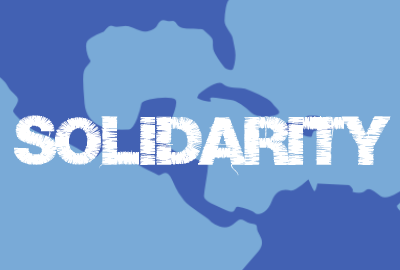

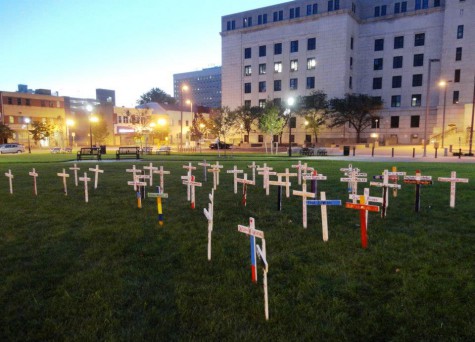

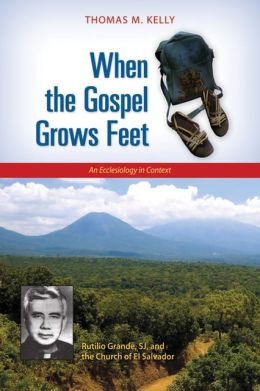
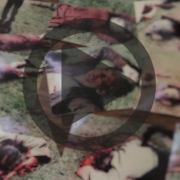
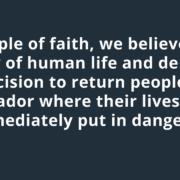


Leave a Reply
Want to join the discussion?Feel free to contribute!